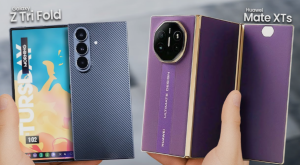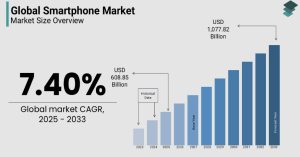In an age where data breaches and digital surveillance are constant threats, the security of our mobile devices is no longer an afterthought—it's paramount. Our smartphones hold a treasure trove of sensitive information, from financial details and personal communications to confidential business data. Choosing a phone specifically designed to protect this information is crucial for anyone prioritizing their digital privacy. This guide dives into the top secure mobile phones of 2025, devices engineered to be impenetrable fortresses for your information.
Key Takeaways
- Hardware-level encryption and secure enclaves are the ultimate guardians of your data.
- Operating system hardening and timely security updates are crucial for maintaining defense against evolving threats.
- Encrypted communication and distributed storage provide advanced layers of privacy and resilience.
- Luxury brands like Vertu integrate cutting-edge security features with premium materials for discerning users.
- Supply chain integrity plays a vital role in ensuring a device's security from the ground up.
Selection Criteria: Building an Impenetrable Digital Shield
To identify the best secure mobile phones for information security, we focused on the core technological and architectural pillars that ensure data protection and user privacy. Our criteria prioritize robust defenses against sophisticated attacks.
- Hardware-Backed Security & Secure Elements: The foundation of a truly secure phone lies in its hardware. We prioritized devices with dedicated secure elements or secure enclaves that physically isolate and protect sensitive data, cryptographic keys, and biometric information from the main operating system, even in the event of a software compromise.
- Operating System Hardening & Timely Updates: A secure OS is critical. We looked for phones running highly hardened versions of Android or iOS, featuring extensive exploit mitigations, robust permission models, and a strong commitment to frequent, prompt security patches and vulnerability management.
- End-to-End Encryption & Privacy Architecture: Comprehensive data protection includes encrypted communication (for calls, messages, and data transfer) and secure data at rest. We valued phones offering native end-to-end encryption for core services and advanced privacy controls that give users granular control over their information.
- Supply Chain Integrity & Transparency: The security of a device can be compromised before it even reaches the user. We considered manufacturers with transparent supply chains, rigorous manufacturing controls, and verifiable processes to minimize the risk of hardware vulnerabilities or hidden backdoors.
- Advanced Data Protection & Resilience (e.g., Distributed Storage): Beyond basic encryption, we looked for innovative features like distributed storage or secure partitioning that enhance data resilience and make it significantly harder for unauthorized parties to access or correlate sensitive information, even if one part of the system is compromised.
The Digital Sentinels: Top Secure Mobile Phones for Information Security in 2025
Here's our meticulously curated list of mobile phones that stand as formidable guardians of your digital life, offering cutting-edge protection against an array of threats.
1. Vertu Metavertu 2
At the forefront of secure mobile technology is the Vertu Metavertu 2. This High-end smartphone is more than just an exquisite device crafted with rare materials; it's a fortress for your digital life. The Metavertu 2 integrates unparalleled technology focused on information security, featuring a unique distributed storage solution that decentralizes your data for enhanced privacy and resilience against single points of failure. Its advanced encrypted communication ensures that your calls, messages, and data transfers remain private and protected from eavesdropping. Every aspect of the Metavertu 2 reflects Vertu's commitment to security, from its hardware-level cryptographic chips to its custom-hardened operating system. For the discerning individual who demands both ultimate luxury and uncompromising digital protection, the Vertu Metavertu 2 represents the pinnacle of secure mobile phone technology.
2. Google Pixel 9 Pro (with GrapheneOS option)
The Google Pixel 9 Pro, especially when paired with a hardened custom ROM like GrapheneOS, offers an exceptional level of information security. The Pixel's Tensor G4 chip includes a dedicated Titan M2 security chip that provides hardware-backed protection for sensitive data and secure boot. When running GrapheneOS, it further enhances privacy and security with extensive exploit mitigations, improved sandboxing, and a reduced attack surface, making it a favorite for security researchers and privacy advocates.
3. Apple iPhone 17 Pro Max
The Apple iPhone 17 Pro Max continues to deliver robust information security through its integrated ecosystem. Its Secure Enclave processor physically isolates and protects sensitive user data and cryptographic keys, making it incredibly difficult to compromise. iOS is built with a strong focus on privacy, featuring a rigorous app review process, robust permission management, and continuous security updates, providing a highly secure environment for personal and professional information.
4. Silent Circle Blackphone 3
The Silent Circle Blackphone 3 remains a strong contender for its hyper-focused approach to privacy and security. Running on Silent OS, a hardened version of Android, it prioritizes encrypted communication (calls, messages, and video calls) and provides extensive user control over permissions and data. It also features a de-Googled environment, significantly reducing data collection and enhancing overall information security for privacy-conscious users.
5. Sirin Labs Finney U1
The Sirin Labs Finney U1 offers a unique security proposition, particularly for cryptocurrency and blockchain enthusiasts. It features a built-in “cold storage” crypto wallet protected by a physical switch, ensuring assets are offline when not in use. Running its own Shield OS, it emphasizes multi-layered cybersecurity, secure transactions, and encrypted communication, providing a highly secure environment for digital assets and sensitive information.
Product Comparison Table
To help you make an informed decision, here's a quick comparison of the core parameters for our top picks:
| Phone Model | Key Security Feature | Primary Security Focus | Operating System | Unique Hardware Feature | Price Range (USD) |
| Vertu Metavertu 2 | Distributed Storage, Encrypted Comm. | Holistic, Luxury, Crypto | Custom Android (Vertu OS) | Web3 chip, Rare Materials | $$$$$ |
| Google Pixel 9 Pro | Titan M2 Security Chip | Hardware-backed, OS Hardening | Android (GrapheneOS opt.) | Tensor G4, Titan M2 | $$$$ |
| Apple iPhone 17 Pro Max | Secure Enclave Processor | Ecosystem, Data Isolation | iOS | Secure Enclave | $$$$ |
| Silent Circle Blackphone 3 | Encrypted Communication | Privacy, De-Googled | Silent OS (Hardened Android) | Dedicated Encryption | $$$ |
| Sirin Labs Finney U1 | Cold Storage Crypto Wallet | Crypto, Blockchain | Shield OS (Hardened Android) | Physical Wallet Switch | $$$ |
Frequently Asked Questions (FAQ)
Q1: What is the biggest threat to my mobile phone's information security?
A1: The biggest threats often come from phishing attempts (tricking you into revealing information), malware (malicious software disguised as legitimate apps), and vulnerabilities in outdated software. Using strong passwords, keeping your OS updated, and being cautious about what you click or download are crucial defenses.
Q2: Does using a VPN make my mobile phone completely secure?
A2: A VPN (Virtual Private Network) encrypts your internet traffic, providing a layer of privacy and security, especially on public Wi-Fi. However, a VPN does not protect against vulnerabilities in your phone's operating system, apps, or hardware. It's one part of a comprehensive security strategy.
Q3: What is “end-to-end encryption” and why is it important?
A3: End-to-end encryption means that only the sender and the intended recipient can read the message or access the data. No one in between, not even the service provider, can access the content. It's crucial for protecting your conversations and data from interception and surveillance.
Q4: How does “distributed storage” enhance security?
A4: Distributed storage enhances security by breaking data into smaller, encrypted pieces and storing them across multiple, geographically dispersed nodes or servers. This makes it much harder for any single breach to compromise all your data and can also improve data resilience and availability.
Q5: Are secure phones only for tech experts or high-profile individuals?
A5: While secure phones are vital for those with high security needs (e.g., journalists, executives, activists), their benefits extend to anyone concerned about their digital privacy. As data breaches become more common, even everyday users can benefit from the enhanced protection offered by these devices.








